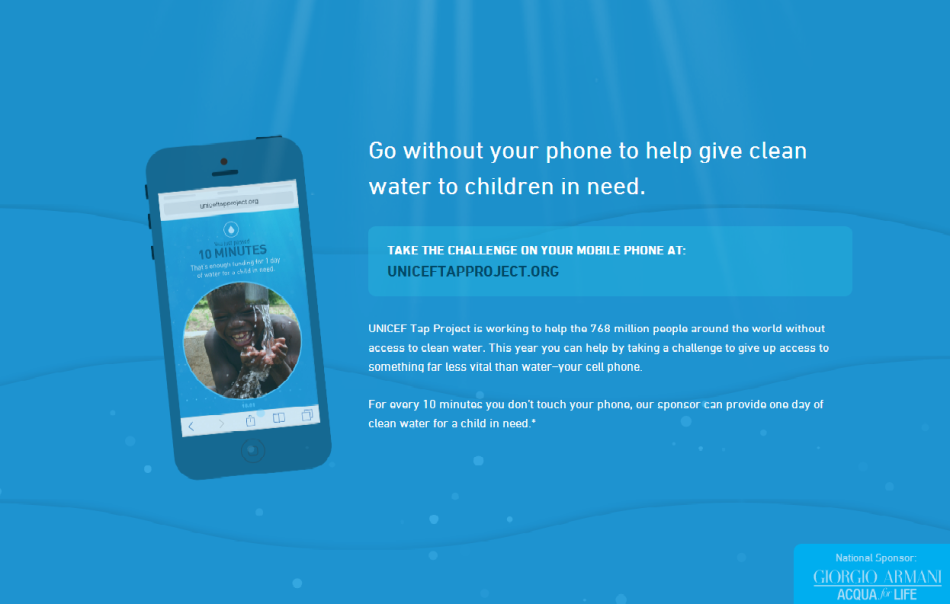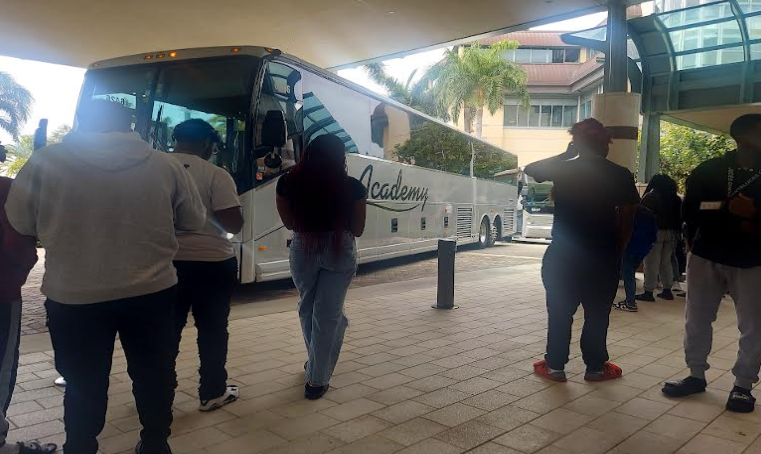On campus, many students are concerned about their inability to consume beverages, such as Red Bull, Monster, Mountain Dew, Coke, or even clear drinks like Sprite in the classroom.
Little do they know that conserving drinking water is a major issue facing countries all over the world, including the United States.
“Managing the supply and availability of water is one of the most critical natural resource issues facing the United States and the world,” according to the EPA, the United States Environmental Protection Agency.
UNICEF, the United Nations Children’s fund, has created a project in order to allow people to assist these countries by giving up something of their own. The UNICEF Tap Project challenges its participants to visit uniceftapproject.org and “go without your phone to help give clean water to children in need. For every ten minutes people last without using their phone, UNICEF sponsors will donate a day’s worth of clean water for a child in need.
While the timer ticks away like water trickling into a stream, UNICEF provides the volunteer with facts about the people they are helping and facts about the need for clean water.
“The UNIEF Tap Project is working to help the 768 million people around the world without access to clean water,” according to UNICEF’s website for the Tap Project. “This year you can help by taking a challenge to give up access to something for less vital than water – your cell phone.”
Even students and teachers at Santaluces have decided to take the challenge. AP Psychology teacher, Mr. Gray has his entire class participate in the Tap Project during the duration of his class.
“At my previous school, there was an organization that dealt with peace and tolerance,” said Mr. Gray. “It taught students that they have the power, individually, to make good choices. I got an email from them about what UNICEF was doing and decided to give my students the opportunity to participate. I wanted to demonstrate how simple yet powerful their choices are.”
According to their website, UNICEF works in more than 190 countries and territories to save and improve children’s lives. Students, teachers, and parents who are willing to sacrifice their time on Twitter and a chunk of their battery life will help sustain the lives of children, globally.








